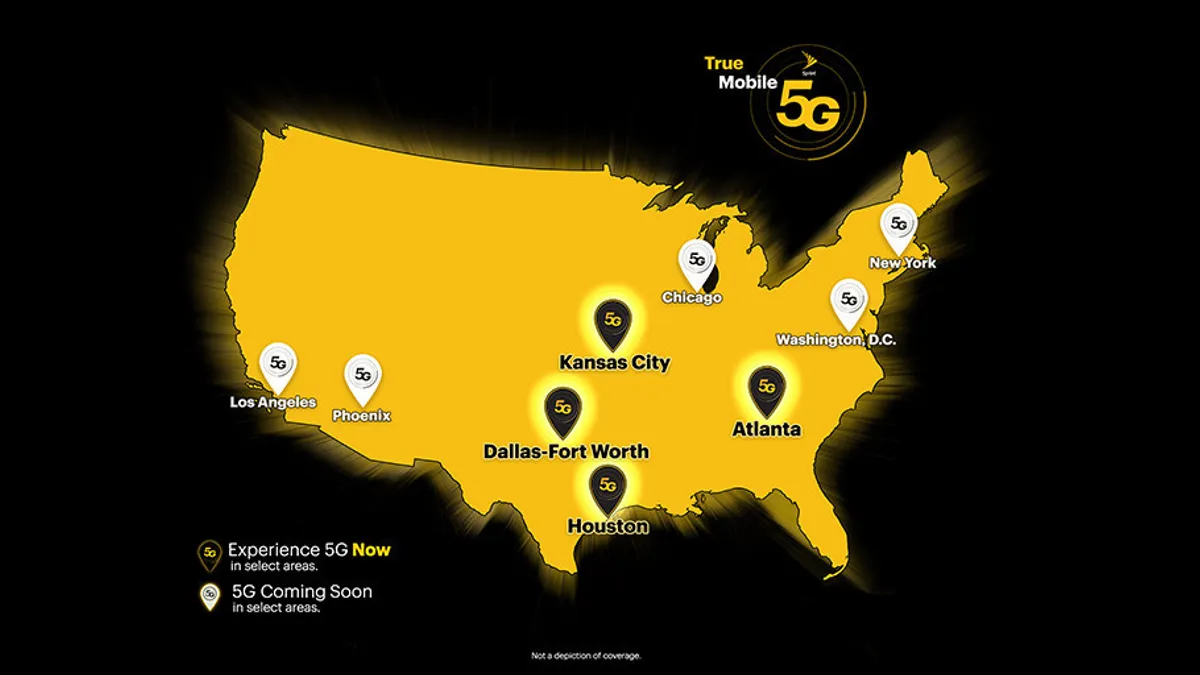Dive Brief:
- Sprint has activated what it calls the "largest initial 5G coverage footprint" in the country with mobile 5G service now live in Atlanta, Dallas-Fort Worth, Houston and Kansas City, MO.
- Sprint says it will expand service to parts of Chicago, Los Angeles, New York City, Phoenix and Washington, DC in the coming weeks. The service area will cover about 2,180 square miles and 11.5 million people.
- Customers can access the network on three 5G-ready devices: the LG V50 ThinQ 5G, the HTC 5G Hub and the Samsung Galaxy S10 5G. The first two devices are available today; the Galaxy phone won't be in stores until the summer.
Dive Insight:
Following network launches by Verizon and AT&T, Sprint's launch makes T-Mobile the only major carrier to not have made its debut with 5G networks.
In the early days of 5G, each carrier's reach will be limited and the customer base will be restrained to those who can afford a 5G device and data plan.
Notably, Sprint's radio has a split mode, which allows devices to use 5G and LTE Advanced networks. That's a more dependable system than the millimeter-wave technology some competitors have relied on, which is fast but spotty if users are not within range of a 5G node. That could help encourage customers who want the broadest possible access to the fast download speeds of 5G, although the range is still limited to certain neighborhoods in the launch cities.
Sprint is pegging its 5G future on its proposed merger with T-Mobile; both companies have promised that their combined resources could create the nation's most robust 5G network and bring fast download speeds to rural areas.
The deal is in front of federal regulators, and Bloomberg reported that Justice Department officials may want the combined companies to create an entirely separate wireless carrier as a condition of approval. Citing a source familiar with the discussions, Bloomberg said the new network would assuage concerns about consolidation in the market, since the merger would bring the number of major wireless carriers down from four to just three.
For Sprint's launch cities, the 5G option could accelerate adoption of new smart cities technology. The ultra-fast data transfer possible through 5G will support innovations like connected vehicles and infrastructure, smart grids and internet of things sensors. All four of Sprint's launch cities have also been listed as 5G cities by Verizon, which could give them a leg up in launching new technology.











